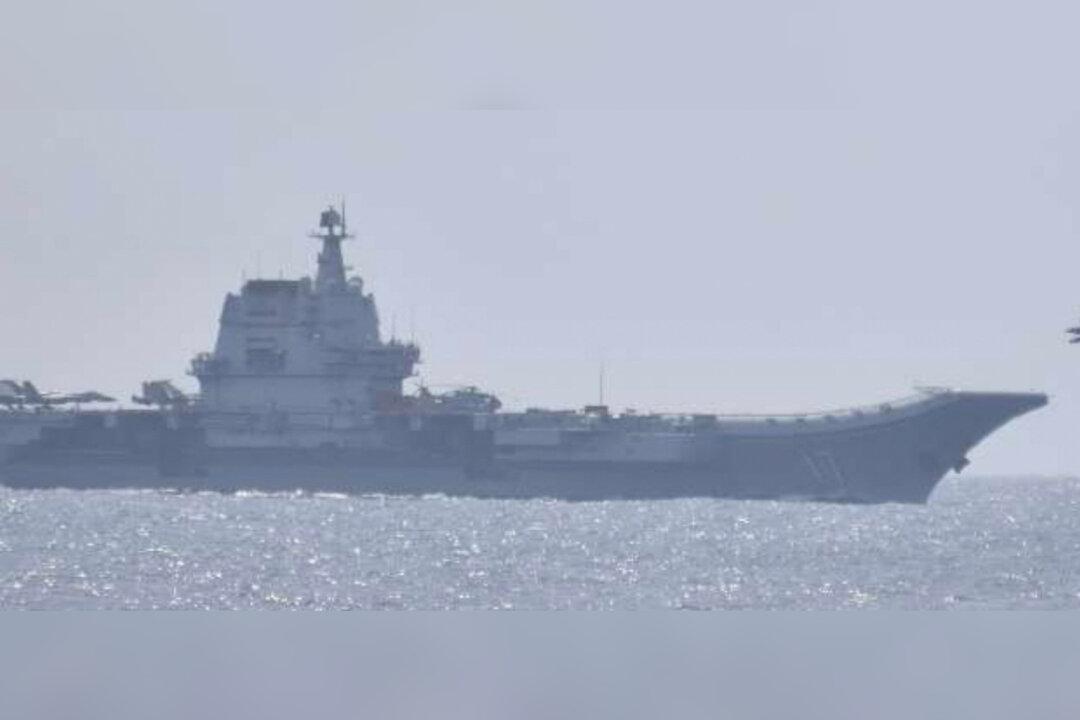Chinese People’s Liberation Army (PLA) ships were spotted circling Japan for days in an apparent show of force amid Japan’s missile defense system deployment on an island near Taiwan.
Japan’s defense ministry said on May 11 that a Chinese naval flotilla, led by the PLA’s Type 055 guided missile destroyer Lhasa, has been spotted sailing around Japan-controlled islands since April 30.





